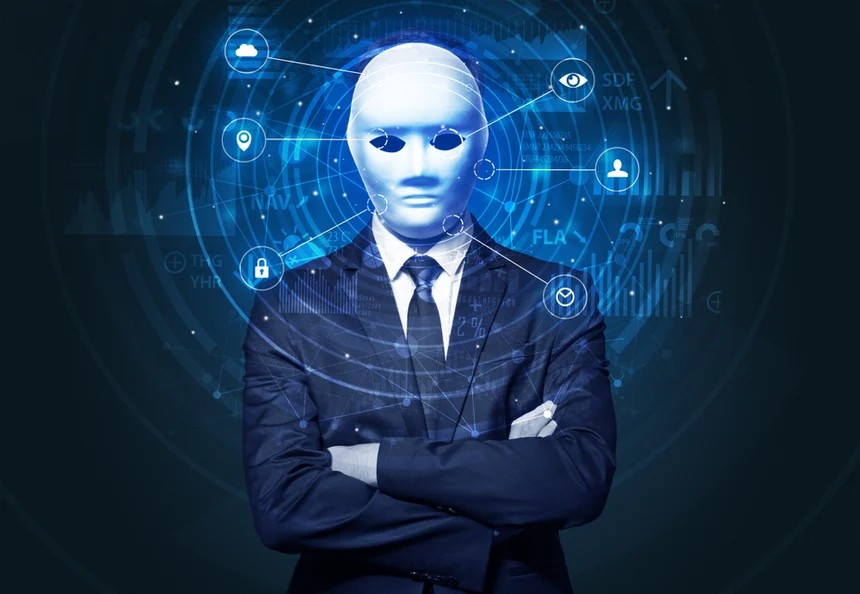Artificial intelligence, or AI, has become the buzzword in today's tech world. From chatbots to virtual assistants, AI is everywhere and growing in popularity. It's no surprise that businesses and industries are turning to AI to streamline processes and improve customer experiences. The potential for AI seems limitless, and with advancements in machine learning and data analysis, it's clear that AI is here to stay. In fact, this paragraph was written using AI!
But what can AI do for your company?

So what is AI really?
Technically, it refers to the development of computer systems that can perform tasks that typically require human intelligence, such as visual perception, speech recognition, decision-making, and language translation. But to back up a bit and put things in perspective; AI is just the latest step in computer automation.
Computers have been helping businesses do more things more quickly for decades now. Automation has been a huge factor in improving efficiency and profitability in that time. Initially, we went from automating "dumb" tasks: things which are repetitive and can be mechanized or completed programmatically. Over time, this technology has evolved to allow for more variables to be in place. AI is really just a natural extension of this. It allows for a wide variety of variables and inputs and is programmed to take these inputs and turn out a result.
What is AI capable of now?
With these advancements in technology, AI has evolved to perform complex tasks like speech recognition, image and pattern recognition, and language translation. If you've ever used a virtual assistant like Apple's Siri or Microsoft's Cortana, you've used a form of AI. The biggest improvement as of late, has been content generation and interaction. Chatbots like OpenAI's ChatGPT allow for almost human-like interaction through text messages while other AI systems can be used to generate images, music, scripts and designs.
As a result, AI is quickly becoming a tool business use and rely on to continue increasing production capability while keeping costs down. That said, it does come with a few ethical concerns.
Will AI replace my employees?
The rise of artificial intelligence has led to concerns about whether it will replace human employees in the future. In short: no it won't. While AI is capable of performing certain tasks, it cannot fully replicate the creativity, critical thinking, and overall intelligence that humans possess. AI may be able to handle repetitive and mundane tasks, but it cannot replace the unique abilities and skills that your employees bring to the table.
What AI can do however is help your employees become even more productive. What AI lacks in pure intelligence, it largely makes up for in speed. AI can analyze and/or process large volumes of data very quickly and come up with a solution which can serve as a base for further development. For example, if I needed to create a computer program to perform a task, I could have AI write me up the basic premise of the program on which I put the finishing touches and roll out, thus saving hours of valuable time. Another example would be something like AI-powered chatbots, which can assist employees in handling customer inquiries, leaving them with more time to focus on higher-value tasks or sales.
So to reiterate, AI isn't likely going to replace your employees any time soon. It is an assistant, not a replacement, to your existing workforce. One which can provide a competitive edge and give you a potential leg-up in your industry.
Is AI too good to be true?
So far, AI sounds like nothing but peaches and cream right? You're probably asking "what's the catch"? As it stands, there are three major points of concern you're going to want to think over when it comes to any sort of AI powered product or solution.
- Price/Cost: With more modern AI systems being relatively new, you'll find a lot of solutions may have some significate startup costs to implement. As with any tool, you'll want to make sure you'll actually get a return on your investment (in this case, usually in time savings) before signing onto anything.
- Security: What's even more important to be wary of are the cheap solutions. Often times you'll find in EULAs of some of these services that any data you supply it gets mixed into the giant bowl of mystery-meat data used to "train" the AI As a result, this could leave important, private company data in the wrong hands.
- Immaturity: Modern AI is still a very young and immature technology. While a lot of sales people like to throw it around like it's "the thing", be careful that you don't get over-sold on it's capabilities, especially in some industries where it's capabilities isn't very fleshed out yet.
Now this isn't to say you shouldn't look at using AI to improve your business and processes, but just make sure you keep both eyes open when looking at any solution.
The next phase of business development
At this point, anyone who knows technology or business (or both), knows AI is here to stay and will only improve with time. New tools and services are rolling out almost daily and their impact may rival that of the original industrial revolution. That's why it's essential to have a reliable IT provider that can help you navigate the intricacies of AI. An experienced IT provider can help you choose the right AI solutions for your business, ensure seamless integration, and provide ongoing support and maintenance. With the right IT provider by your side, you can leverage the power of AI to transform your business and stay ahead of the competition.